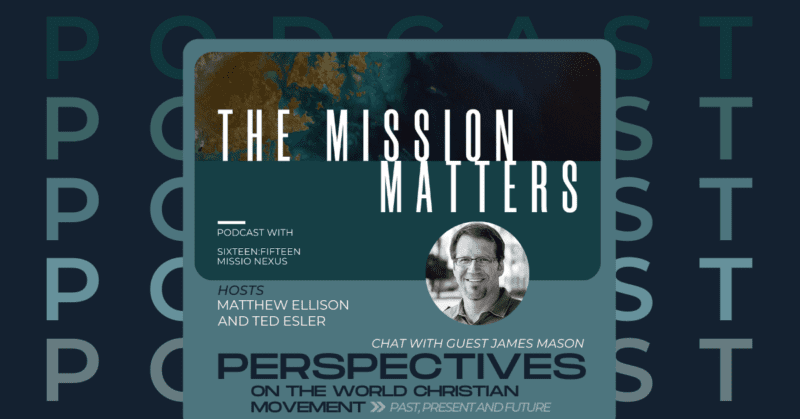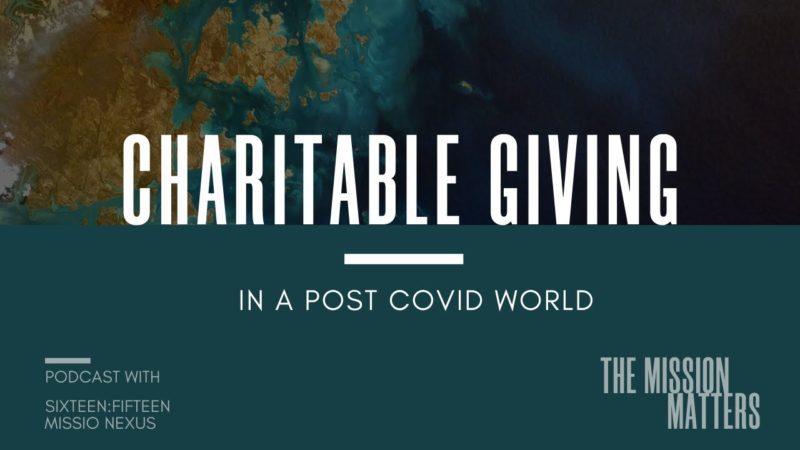Seeing Ministry Partners as People – or Targets?


This article was originally published for Support Raising Solutions by Betty Barnett
A few years ago, a prayer formed in my head and heart, ”Lord Jesus, help me see the person, not the package! You always did that when you were here on earth!” I was facing a challenging circumstance where I desperately needed God’s perspective to form my attitude, my responses, my words. I was about to attend a gathering of people, including many with different perspectives than my own…those in the LGBTQ community. I wanted to engage with people, to see their intrinsic value through God’s eyes, and not to react to their lifestyle which collided with my Christian values. I found myself reflecting on Jesus’ approach to “fringe” or marginalized people: the Samaritan woman, the tax collector, the prostitute – those people typically shunned by the religious establishment. He always “saw” them…the person, the one of value in spite of cultural commentary or judgment. He reached out to connect with their person, not their “package”.
We, too, can be confronted with this challenge as we relate to our ministry partners. It’s easy for us to jump to conclusions about people, seeing first their “package” (wealth or status, etc.) and not seeing them from the Lord’s perspective. Are they “targets” for us in meeting our own needs, whether in ministry support or otherwise? Or, are we able to pray, “Lord, help me see the person, not the package! Help me be a blessing!” This prayer guided me as I met and spoke with individuals at that event, resulting in significant conversations with many people from backgrounds and orientations different from my own. Rather than my first introduction being one of judgment, it was one of true interest in the person, focusing on their eyes, their “being” rather than what might cause alienation, for them or for me. I believe God met us in that moment.
For me, using the term “friend raising” rather than “fund raising” captures the essence of support raising or ministry partnership development. It promotes the richness in relationships that God wants us to build. We are to seek first the kingdom of God, not the dollar. We are to care more for people as friends, persons of value, rather than for their potential contribution to our ministry. The kingdom of God focuses us away from the world’s value system toward a godly development of friends, more like Jesus did. Our needs are met as a by-product, not as the goal.
I’m reminded of a life-altering experience I had in Mexico City years ago when I prayed, “God, what is the key to support raising that applies to all people?” I was about to speak to a team of Guatemalan missionaries-in-training and was honestly intimidated. I was fearful that I had an “American” perspective on support raising and I wanted God’s universal perspective that applied to all people, regardless of personality, background, or culture. One word shot into my mind, “Generosity!” and I immediately knew it didn’t mean others’ generosity toward us, but rather our generosity toward others that was the key.
When money is our primary aim, everything we do in ministry partnership development is tainted with the love of money. When friendship and generosity are our primary motive, we aim for the heart of God and His ultimate fulfillment for us: love for Him and love for one another, the object of the two great commandments.
We are called into a lifestyle of giving and receiving, while building relationships as He leads. By seeking to serve our ministry partners, we give them opportunities to share in our lives and ministries. Others can easily tell whether our motives are to cherish and enjoy them or to use them to serve our own goals. We’ve all experienced that, right? Friend raising means loving and caring for others so that they and the kingdom of God will be built up at the same time. We invite others into partnership with our ministry as an opportunity for them to prayerfully consider, not as an expectation (remembering that free will is a gift from God and we need to honor that for each other).
Mother Teresa was often asked what she believed caused the greatest suffering. Her response? “Loneliness.” From one who was continually confronted by starvation, disease, and death, that answer is surprising. Yet it’s not surprising to God. God created Adam for friendship. Then He saw that Adam needed friendship and intimacy not only with Him but also with another human being. Intimacy is the foundation of our lives. We were designed for it, and it is only there that our deepest desires are fulfilled. Our greatest ache comes from loneliness. This past year of isolation in one form or another due to the COVID pandemic has highlighted this for us in many ways.
Throughout my years of ministry partnership, I have been challenged with my own motives at various times. As I’ve prayed, God has changed my heart’s motivation from the love of money to a far greater love. But first, I need to recognize the selfishness in my own heart, the distortion from His highest in the relationship. That’s where we start, praying for the Lord to change our selfish motivations into His Kingdom motivations. We see the person (not their potential to help us), showing genuine interest in them, what they’re interested in and what is weighing them down. We learn to listen better, rather than get our own needs across and we look for common ground. We look for ways in which we can be generous to them, to be a blessing to them, whether it’s as simple as praying for them for a specific need, giving them a word of encouragement, or connecting them to resources that may help in their needs, or…God knows! He knows how we can be a blessing to them. We start there…
“Listen for God’s voice in everything you do, everywhere you go;
he’s the one who will keep you on track.” (Prov. 3:6, The Message)
May we see the person, not the package – may the Lord lift our eyes to align with His as we seek first the Kingdom, not the support!
Note: Portions of the above article are taken from Betty’s book, Friend Raising – Building a Missionary Support Team That Lasts.
This article is submitted by Jessica Wood of Support Raising Solutions. Support Raising Solutions is a Missio Nexus member. Member organizations can provide content to the Missio Nexus website. See how by clicking here.






Responses